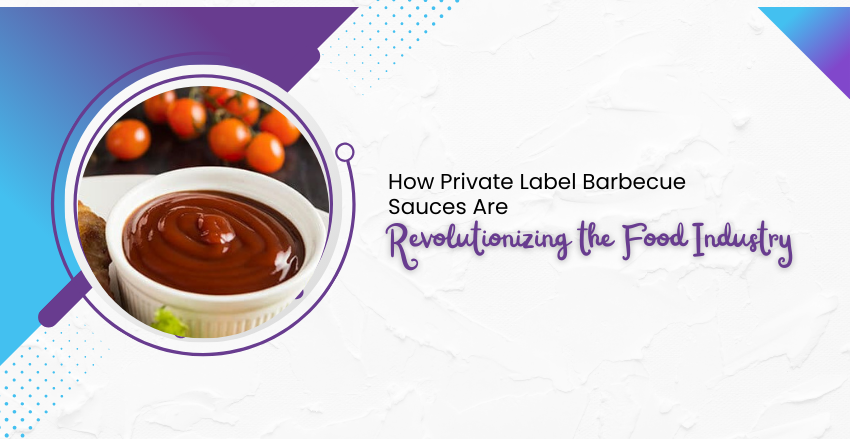The food industry is continuously evolving, with consumer preferences and market dynamics driving innovation. One of the most significant trends in recent years has been the rise of private label products. Among these, private label barbecue sauces are making waves, revolutionizing how sauces are produced, marketed, and consumed. But what exactly is private label, and why are these barbecue sauces becoming such a hot trend?
What Is Private Label?
Private label products are goods produced by one company and sold under another company’s brand. These products are often manufactured by third-party producers who specialize in creating high-quality goods at competitive prices. The appeal for retailers lies in offering unique products that stand out on the shelves, often at a lower cost than established branded items. Private label barbecue sauces are typically created to meet consumer tastes and trends, allowing businesses to provide an extensive range of options without investing heavily in the production process themselves.
Why Private Label Barbecue Sauces Are Gaining Popularity
- Tailored to Consumer Preferences: In today’s world, consumers are more health-conscious, flavor-driven, and socially aware than ever. Private label barbecue sauces allow companies to tailor the ingredients, flavors, and even the labeling to align with what consumers are looking for. Whether it’s a focus on organic, gluten-free, sugar-free, or low-sodium options, these sauces can be customized to meet diverse dietary preferences. The flexibility in creating unique sauces that cater to niche markets helps brands gain a competitive edge.
- Competitive Pricing: One of the most significant benefits of private label barbecue sauces is their cost-effectiveness. Since private label brands eliminate the need for large marketing and advertising budgets (which major national brands often rely on), the savings are passed on to consumers. As a result, private label products can offer premium flavors at more accessible prices, making high-quality sauces available to a broader audience. This pricing advantage allows smaller food businesses to compete with industry giants without sacrificing quality.
- Expanding Brand Identity: For businesses, offering a private label barbecue sauce can serve as an extension of their brand. Restaurants, local grocery stores, and food producers are increasingly recognizing the potential of creating their own unique barbecue sauces that reflect their brand’s identity. A signature barbecue sauce becomes not just a condiment but also a part of the overall experience that customers associate with the brand. This not only strengthens customer loyalty but also opens new revenue streams as these sauces are marketed as exclusive products.
- Sustainability and Ethical Sourcing: Consumers are becoming more discerning about where their food comes from. They care about the sustainability of ingredients and whether the products they buy are ethically sourced. Private label barbecue sauce producers often have the flexibility to create formulas that use locally sourced, organic, or sustainably grown ingredients. This flexibility helps align the product with the growing demand for transparency in the food industry.
- Market Differentiation: In the saturated food market, differentiation is key. Private label barbecue sauces allow brands to stand out by offering flavors and combinations that competitors might not have explored. For instance, unique blends of spices, regional influences (like Texas-style or Memphis-style BBQ), and international fusion flavors can create excitement in the market. As consumers seek new and exciting culinary experiences, these creative options help brands capture their attention.
The Impact on the Food Industry
The shift towards private label barbecue sauces is more than just a passing trend. It’s a major shift in how food products are produced, marketed, and sold. With increased competition and consumer demand for diversity, quality, and price efficiency, private label barbecue sauces are playing a central role in shaping the food landscape.
The success of these sauces has encouraged large retailers to invest in their own in-house brands, while small-scale producers can now enter the market with greater ease. This creates a more vibrant, competitive market where quality products come from various sources, not just big-name companies.
Conclusion
Private label barbecue sauces are no longer just a niche offering—they are becoming a mainstream solution to the evolving needs of the food industry. Through customization, cost-effectiveness, and a strong connection to consumer values, these sauces are revolutionizing the way barbecue lovers experience their favorite condiments. As businesses continue to explore private label options, it’s clear that the humble barbecue sauce is poised to become an even more significant player in the food world, offering unique and flavorful experiences to consumers everywhere.


